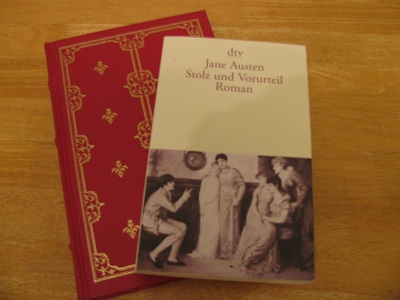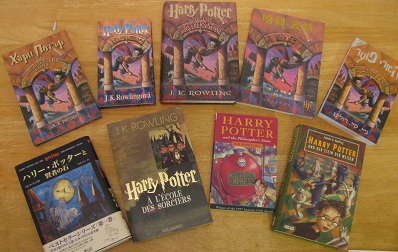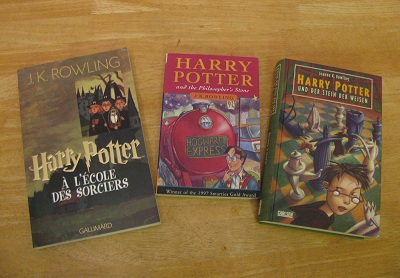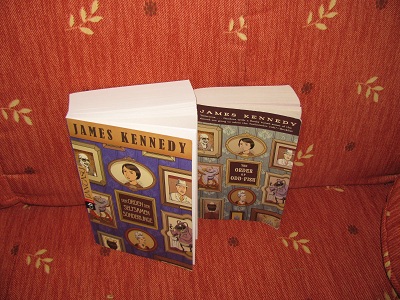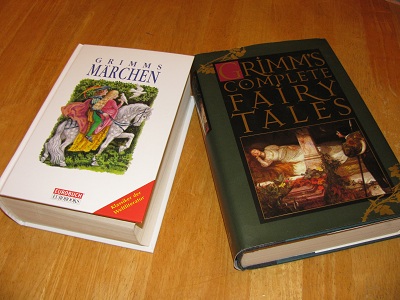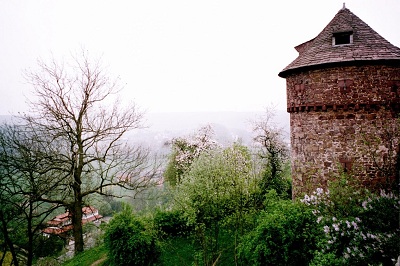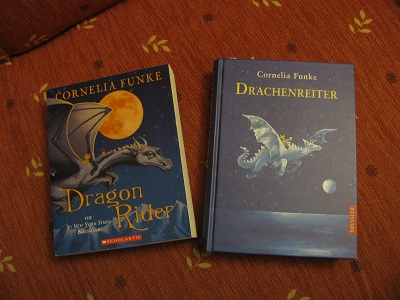Sonderling Sunday – Pride and Prejudice
It’s time for Sonderling Sunday, that time of the week when I play with language by looking at the German translation of children’s books — or, um, not. Today I’m going to tackle that classic masterpiece of romance novel, Pride and Prejudice, Stolz und Vorurteil.
(Is that German cover awful, or what?)
The title is pretty much a straight translation. Urteil means “judgment,” so Vorurteil is “fore-judgment,” which is pretty much “prejudice.”
But let’s rush to that classic and immortal first sentence. I’ll try quoting it from memory:
“It is a truth universally acknowledged that a single man in possession of a large fortune must be in want of a wife.”
No, I got a word wrong. It should be “in possession of a good fortune.”
Okay, how is that immortal thought expressed in German?
Es ist eine allgemein anerkannte Wahrheit, da? ein alleinstehender Mann, der ein beträchtliches Vermögen besitzt, einer Frau bedarf.
Translated literally back, that says, “It is a generally recognized truth, that an alone-standing man, who a considerable fortune possesses,” [I personally think of besitzt as “sits on,” but that’s not really the translation.] “…a wife demands.”
My thinking of besitzt is reinforced in this translation from the next paragraph:
“this truth is so well-fixed in the minds of the surrounding families”
= diese Wahrheit sitzt so fest in den Köpfen der Familien in der Nachbarschaft
(my translation back: “this truth sits so fast in the heads of the families in the neighborhood”)
“is let at last” = endlich verpachtet worden ist
“invitation enough” = Aufforderung genug
(This isn’t the word I’ve seen on invitations. It seems to be more of a summons.)
“chaise and four” = vierspännigen Kalesche
“before Michaelmas” = vor Michaeli
“how can you be so tiresome!” = wie kannst du nur so schwer von Begriff sein!
(I seem fascinated by insults and exclamations like this. My translation of that is “how can you be only so difficult about the concept!” When I put together nur so schwer von Begriff in Google translate, I get back “just so slow on the uptake.”)
“no occasion” = keine Veranlassung
“you flatter me” = du schmeichelst mir
“no new comers” = keine Neuankömmlinge
Here German is more concise:
“much to recommend them” = viel Empfehlenswertes (“much recommend-worthy”)
“silly and ignorant” = töricht und unwissend (There I go again.)
A little less subtlety here in German:
“but Lizzy has something more of quickness than her sisters”
= aber Lizzy besitzt etwas mehr Intelligenz als ihre Schwestern
(I know Germans say it like it is. But I’m a lot happier with a father saying a daughter has more “quickness” than her sisters than him saying she has more Intelligenz.)
“You delight in vexing me.” = Es macht dir Vergnügen, mich zu quälen.
“consideration” = Hochachtung (“high attention”)
This sentence deserves being written in full:
“Mr. Bennet was so odd a mixture of quick parts, sarcastic humour, reserve, and caprice, that the experience of three and twenty years had been insufficient to make his wife understand his character.”
= Mr. Bennet bestand aus einer so seltsamen Mischung aus gelegentlicher Heftigkeit, Schlagfertigkeit, sarkastischem Humor, Zurückhaltung und Kaprice, da? die Erfahrungen von dreiundzwanzig Ehejahren für seine Gattin nichte ausgereicht hatten, sein Wesen zu begreifen
Looking at the details of that, there’s a surprise right away:
“quick parts” = gelegentlicher Heftigkeit (Okay, I’m not sure what’s being lost here, because Google translates that as “occasional violence”! This is in a description of Mr. Bennet!)
Then the German has Schlagfertigkeit, which translates as “quick-witted,” so maybe that’s the “quick parts”? Maybe there’s something about occasional violence in the original British version?!?
I do like “reserve” = Zurückhaltung (“back-holding”)
“to . . . understand his character” = sein Wesen zu begreifen (“his ways to comprehend”)
Jane Austen is harsh about Mrs. Bennet:
“mean understanding” = geringer Einsicht (“inferior insight”)
“little information” = wenig Kenntnissen
“uncertain temper” = launenhafter Gemütsart (“capricious disposition” or, breaking it down further, “whimsical mind-type”)
Let’s finish with the last sentence of Chapter One:
“The business of her life was to get her daughters married; its solace was visiting and news.”
= Ihre Lebensaufgabe war es, die Töchter zu verheiraten — ihre Freude, Besuche zu machen und Neuigkeiten zu erfahren.
It’s fun to read Pride and Prejudice in German, because I almost don’t have to look up the English, I know it so well. Es ist eine allgemein anerkannte Wahrheit that I will have to try to use some of these phrases in daily conversation. (Well, in my own head, anyway.)
Next week, I’ll be back to Der Orden der Seltsamen Sonderlinge, which I hope you’ll find viel Empfehlenswertes.
